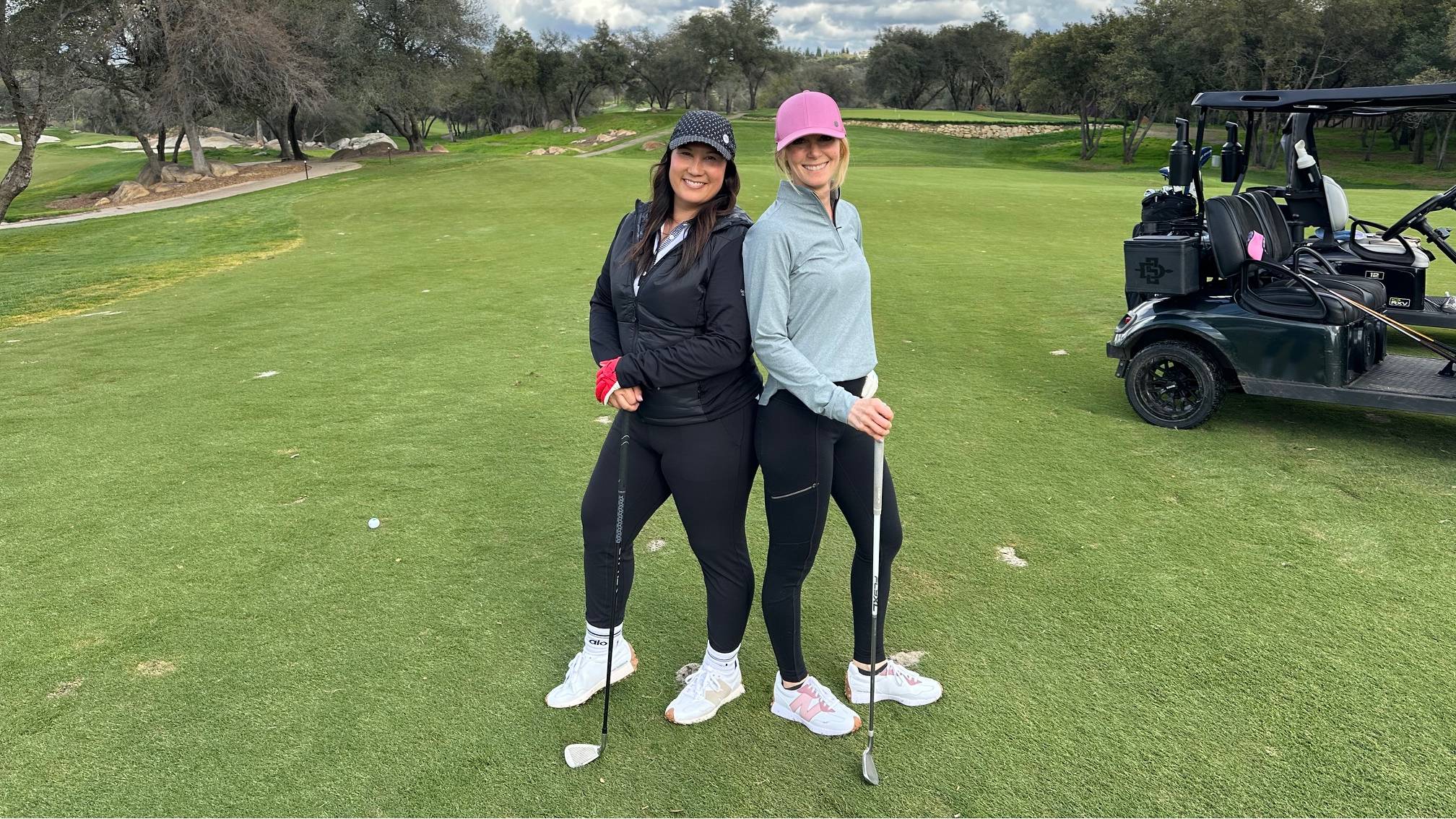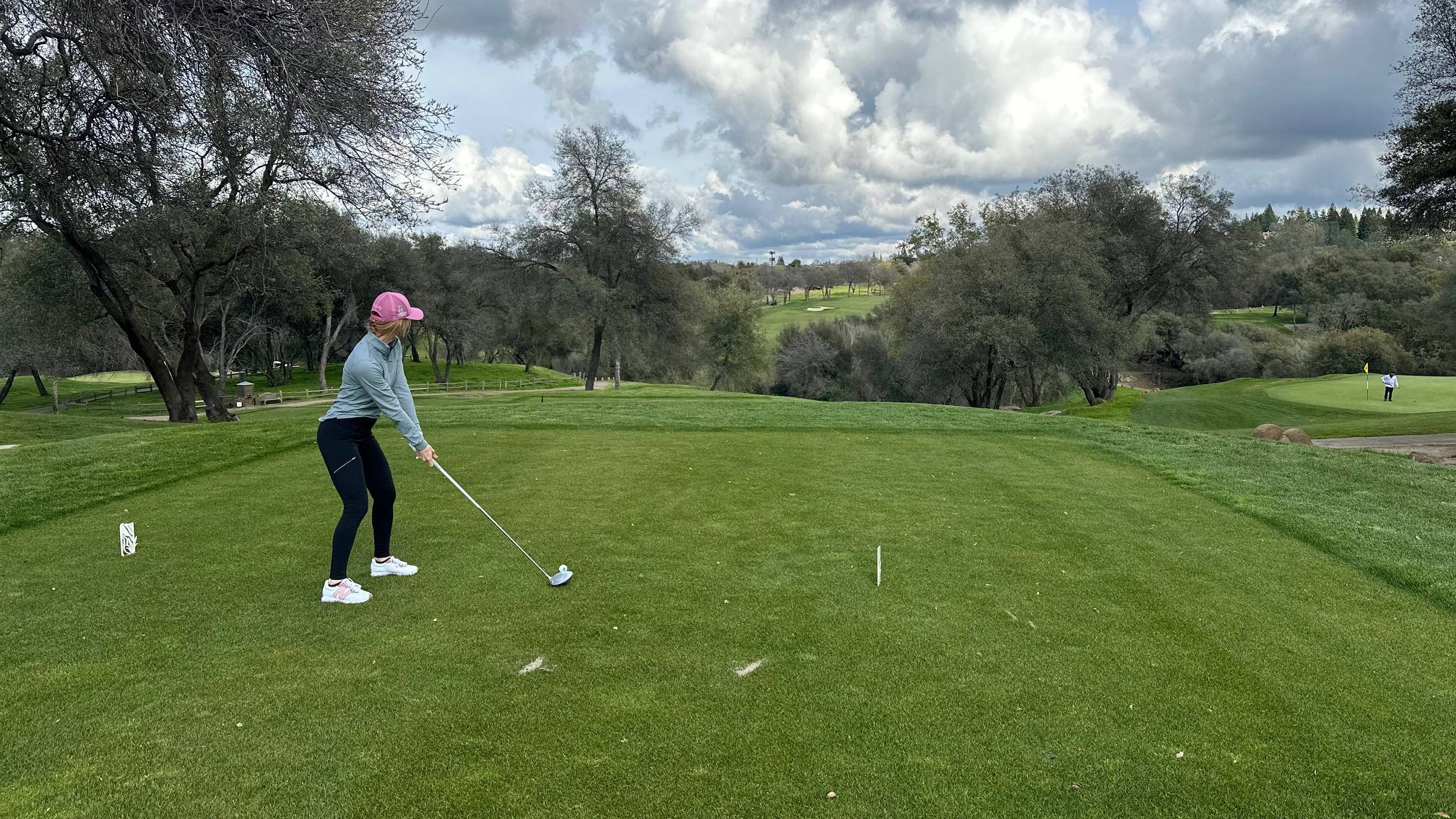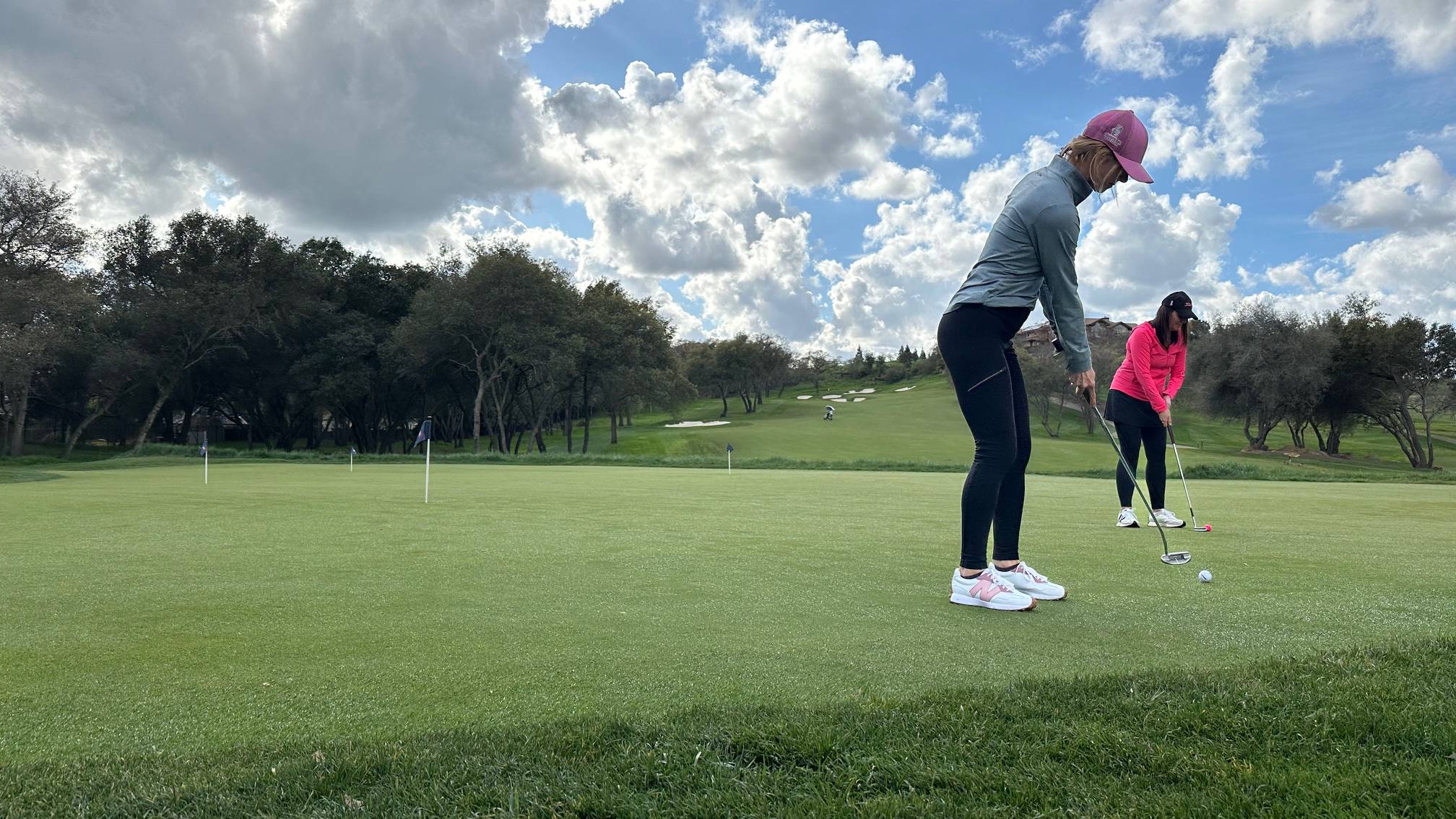7 Signs That Let A Beginner Know They Are Ready To Compete
Lauren Katims is itching to take the next steps in her golfing journey, but is she ready? With the help of LPGA pros, here are the signs to look for


If you asked me last year, I’d say golfing with strangers was not on my to-do list. I was comfortable playing with the same friends, a no pressure 9 holes while our kids were in school or we were off work.
We were all similar levels; we didn’t have much time to practice; and we all looked forward to the lunch that came after our round. But (being the competitive person I am) I was disappointed with my game. I wanted to be better, to play harder, to dedicate more time to golf - but I also I felt like I needed to lower my scores before joining our golf club’s women’s league or jumping in another foursome.
I’d switch between playing with girlfriends and my husband, who has been golfing for 20 years and would enthusiastically get out his score card for match play. “We’re not competing,” I’d say. “I’m not ready. You’re going to mess me up.” And then, as if the words slid straight from my mouth to my golf club: Shank, slice, 3-putt.

I did not play golf as a kid, although I did love competing in a variety of other sports (and for the record, can kick my husband’s butt in a tennis match) and still get a thrill from that game-on pressure - and, let’s be honest, from winning. But, as a beginner, my golf game is inconsistent - and my handicap reflects that - although improving overall as I’ve dedicated more time to practice.
When would I be ready - on the golf course - for that competitive feeling I crave so much? I spoke to two of the LPGA's top 50 US coaches about that feeling of being “ready” for tournament play.
Both coaches agree: Participating in tournaments has little to do with having a low handicap (although you do need an established number for competitive play) because there are tournaments designed for all levels. So, what exactly are the signs to look for?
Here are 7 signals that you’re ready for a little competition on the course:
Subscribe to the Golf Monthly newsletter to stay up to date with all the latest tour news, equipment news, reviews, head-to-heads and buyer’s guides from our team of experienced experts.
Performance Matters To You
If the pressure of having to perform, whether in front of a crowd or one opponent, is energizing, then putting yourself in that position - perhaps signing up for a beginner tournament - may be just the encouragement you need to dial in your practice.
Pro tip: Set a realistic goal for yourself, advises LPGA Teaching Professional Lori Brock, at Stadium Golf Center in San Diego, California. Instead of signing up for the next available tournament, choose one that’s three months away. This gives you a short and firm deadline to implement an effective practice schedule in your busy daily routine and stick to it.
You're Not Satisfied After 9-Hole Games
Maybe your scramble left you feeling unsatisfied because you didn’t get to play your own ball. Or, you notice more often than not, you’d rather make the turn to 10 instead of head inside for lunch and an iced tea.
Pro tip: Start by adding a competitive aspect into your regular 9-hole round, suggests Marvol Barnard, national president of the LPGA Professionals and director of instruction at Country Club of Green Valley in Southern Arizona. This could involve match play with your friends using net scores (as you would in a tournament) or sticking to your club’s on-course rules. It gives you a real sense of what competitive play feels like.

You're Golfing Solo - And Liking It
Golf is one of the few sports that can be social or independent. If you started as a social golfer, enjoying the company equally to the game, but now crave alone time to focus on your play, you’re likely ready to take your game to the next level.
Women often feel uncomfortable golfing by themselves, says Brock, but it’s a great opportunity for on-course practice without the stress of someone watching. “You gain a lot of confidence when you can drop another ball and do it the way you want to,” she says.
Pro tip: Join a local ladies league (I did this through my club and have met new friends of all ages and levels) or sign up for an 18-hole round with women you don’t know to gain confidence playing outside your regular setting, says Barnard. Watching more experienced golfers strategize can be inspiring for practice during your solo rounds.
You View Your Game Objectively
Sure, you may feel a sting of disappointment after a bad shot, but players who can emotionally detach themselves from their mis-hits (no negative self-talk!) perform better under pressure.
Beginner golfers to professionals alike talk about the importance of being mentally strong during rounds. Learning to look at your game objectively, says Brock, helps you view your round as a learning experience instead of dramatizing how each bad shot will affect your hole, or your entire round. Ultimately, this helps you recover faster and reflect on which parts of your game you need to prioritize during practice.
You Understand The Long-Term Aspects Of Golf
You can’t base how you’ll do in tournament play on your first go. Playing under pressure, with new people, where every shot is observed and counted, is bound to make even seasoned golfers flinch from time-to-time.
But, the more you play, the more comfortable it gets, and the more you get desensitized to anxious feelings. Just like committing to targeted practice will improve different parts of your game, committing to a stretch of tournaments will improve your play under pressure.

You're Paying Attention To The Rules
Your playing partner taps her ball from the rough into the fairway for a better lie or your friend hits a ball into a hazard area and takes a lenient drop zone - and it’s just not sitting well with you anymore. Exactly how long was that gimme putt?
Competitive golfers play each stroke (no more gimmes) and apply the rules of the course during practice rounds. In fact, knowing the rules can benefit your stroke in many on course-scenarios.
Pro tip: Get comfortable with on course logistics – don’t walk in someone’s line, always mark your ball, know when to hit a provisional and abandon searching for your ball - by regularly practicing these scenarios while you play casually.
Your Goals Have Progressed
When you first started, your goal was to learn the proper backswing, or how to grip the driver. But now, you’re focusing on lowering the number of 3 putts per round or gaining an extra 10 yards with your 7-iron.
Even if you didn’t physically outline your goals (which Brock recommends reflecting on every couple of months), as you objectively view your game, you sense your goals on the course have shifted. This, ultimately means you’re becoming a more experienced and better player.

Lauren Katims is a freelance writer and editor in Northern California. Over the past couple years, she’s become slightly obsessed with everything golf, including working on the mental aspect of her game as much as the technical skill set.
Lauren is lucky enough to have a group of inclusive and motivating women at her local golf club with whom she plays weekly. Follow along on TikTok @Lkgolfs.